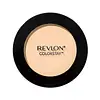What's inside
What's inside
 Key Ingredients
Key Ingredients

 Benefits
Benefits

 Concerns
Concerns

 Ingredients Side-by-side
Ingredients Side-by-side

Water
Skin ConditioningIsostearyl Neopentanoate
EmollientDimethicone
EmollientIsohexadecane
EmollientTrimethylsiloxysilicate
EmollientButylene Glycol
HumectantGlycerin
HumectantLauryl PEG-9 Polydimethylsiloxyethyl Dimethicone
Skin ConditioningDisteardimonium Hectorite
StabilisingTrehalose
HumectantPEG-10 Dimethicone
Skin ConditioningHdi/Trimethylol Hexyllactone Crosspolymer
Dimethicone/PEG-10/15 Crosspolymer
Triethoxycaprylylsilane
Sodium Hyaluronate
HumectantHydrolyzed Soy Protein
HumectantTocopheryl Acetate
AntioxidantPolymethyl Methacrylate
Propylene Carbonate
SolventLecithin
EmollientLaureth-7
EmulsifyingHydrogenated Lecithin
EmulsifyingDimethicone Silylate
Xanthan Gum
EmulsifyingDipropylene Glycol
HumectantSodium Chloride
MaskingMagnesium Aluminum Silicate
AbsorbentSilica
AbrasiveCoconut Acid
CleansingDisodium EDTA
Phenoxyethanol
PreservativeMica
Cosmetic ColorantCI 77491
Cosmetic ColorantCI 77492
Cosmetic ColorantCI 77499
Cosmetic ColorantCI 77891
Cosmetic ColorantZinc Oxide
Cosmetic ColorantCI 77163
Cosmetic ColorantWater, Isostearyl Neopentanoate, Dimethicone, Isohexadecane, Trimethylsiloxysilicate, Butylene Glycol, Glycerin, Lauryl PEG-9 Polydimethylsiloxyethyl Dimethicone, Disteardimonium Hectorite, Trehalose, PEG-10 Dimethicone, Hdi/Trimethylol Hexyllactone Crosspolymer, Dimethicone/PEG-10/15 Crosspolymer, Triethoxycaprylylsilane, Sodium Hyaluronate, Hydrolyzed Soy Protein, Tocopheryl Acetate, Polymethyl Methacrylate, Propylene Carbonate, Lecithin, Laureth-7, Hydrogenated Lecithin, Dimethicone Silylate, Xanthan Gum, Dipropylene Glycol, Sodium Chloride, Magnesium Aluminum Silicate, Silica, Coconut Acid, Disodium EDTA, Phenoxyethanol, Mica, CI 77491, CI 77492, CI 77499, CI 77891, Zinc Oxide, CI 77163
Ingredients Explained
These ingredients are found in both products.
Ingredients higher up in an ingredient list are typically present in a larger amount.
Ci 77891 is a white pigment from Titanium dioxide. It is naturally found in minerals such as rutile and ilmenite.
It's main function is to add a white color to cosmetics. It can also be mixed with other colors to create different shades.
Ci 77891 is commonly found in sunscreens due to its ability to block UV rays.
Learn more about CI 77891Lecithin is a term for a group of substances found in the cell membranes of plants, animals, and humans. They are made up of mixture of phospholipids.
This ingredient has emollient and emulsifying properties.
As an emollient, lecithen helps soften the skin and creates a barrier to keep moisture in.
As an emulsifier, it also helps prevent water and oil ingredients from separating. Lecithin can also help ingredients be better absorbed by the skin.
This is because the phospholipids in lecithin produce liposomes. Liposomes help other ingredients get through the skin barrier.
Depending on the source of this ingredient, lecithin may not be fungal acne safe. This is because some sources of lecithin come from soybean oil, which may feed the malassezia yeast that feeds fungal acne.
We recommend reaching out to the brand you are purchasing from to inquire about the source of their lecithin.
Some other names for this ingredient include soy lecithin and deoiled soy lecithin.
Learn more about LecithinPhenoxyethanol is a preservative that has germicide, antimicrobial, and aromatic properties. Studies show that phenoxyethanol can prevent microbial growth. By itself, it has a scent that is similar to that of a rose.
It's often used in formulations along with Caprylyl Glycol to preserve the shelf life of products.
Silica, also known as silicon dioxide, is a naturally occurring mineral. It is used as a fine, spherical, and porous powder in cosmetics.
Though it has exfoliant properties, the function of silica varies depending on the product.
The unique structure of silica enhances the spreadability and adds smoothness, making it a great texture enhancer.
It is also used as an active carrier, emulsifier, and mattifier due to its ability to absorb excess oil.
In some products, tiny microneedles called spicules are made from silica or hydrolyzed sponge. When you rub them in, they lightly polish away dead skin layers and enhance the penetration of active ingredients.
Learn more about SilicaTriethoxycaprylylsilane is a silicone used to bind and stabilize ingredients.
As an emulsifier, it helps prevent ingredients from separating. This can help elongate the shelf life of products.
Triethoxycaprylylsilane is often used to coat mineral sunscreens ingredients to help give a better feel. It also helps reduce oxidative stress in sunscreens.
Learn more about Triethoxycaprylylsilane